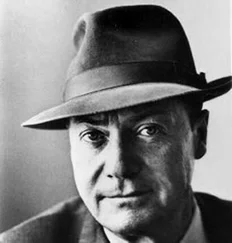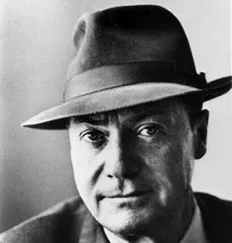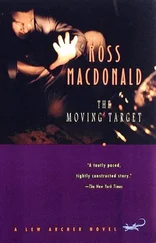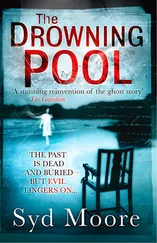Ross Macdonald - The drowning pool
Здесь есть возможность читать онлайн «Ross Macdonald - The drowning pool» весь текст электронной книги совершенно бесплатно (целиком полную версию без сокращений). В некоторых случаях можно слушать аудио, скачать через торрент в формате fb2 и присутствует краткое содержание. Жанр: Крутой детектив, на английском языке. Описание произведения, (предисловие) а так же отзывы посетителей доступны на портале библиотеки ЛибКат.
- Название:The drowning pool
- Автор:
- Жанр:
- Год:неизвестен
- ISBN:нет данных
- Рейтинг книги:5 / 5. Голосов: 1
-
Избранное:Добавить в избранное
- Отзывы:
-
Ваша оценка:
- 100
- 1
- 2
- 3
- 4
- 5
The drowning pool: краткое содержание, описание и аннотация
Предлагаем к чтению аннотацию, описание, краткое содержание или предисловие (зависит от того, что написал сам автор книги «The drowning pool»). Если вы не нашли необходимую информацию о книге — напишите в комментариях, мы постараемся отыскать её.
, Lew Archer takes this case in the L.A. suburbs and encounters a moral wasteland of corporate greed and family hatred—and sufficient motive for a dozen murders.
The drowning pool — читать онлайн бесплатно полную книгу (весь текст) целиком
Ниже представлен текст книги, разбитый по страницам. Система сохранения места последней прочитанной страницы, позволяет с удобством читать онлайн бесплатно книгу «The drowning pool», без необходимости каждый раз заново искать на чём Вы остановились. Поставьте закладку, и сможете в любой момент перейти на страницу, на которой закончили чтение.
Интервал:
Закладка:
“Pareco?” It was the name of a gasoline. My only connection with it was that I used it in my car occasionally. I told her that.
She looked closely into my face, and apparently decided I wasn’t lying. “The Pacific Refinery Company has been trying to get control of my property. For years they’ve been laying siege to me, and it’s made me a little suspicious of strangers, especially when they express an interest in real estate.”
“My interest is entirely personal,” I said.
“I’m sorry if I’ve maligned you, Mr. Archer. The events of the last few years have embittered me, I’m afraid. I love this valley. When my husband and I first saw it, more than thirty years ago, it seemed our earthly paradise, our valley of the sun. When we could afford to, we bought this lovely old house and the hills around it, and when he retired we came here to live. My husband is buried here—he was older than I—and I intend to die here myself. Do I sound sentimental?”
“No.” Her feeling for the place was stronger than sentimentality, and a little frightening. Her heavy body leaning on the gate was monumental in the evening light. “I can understand your attachment to a place like this.”
“I am a part of it,” she continued throatily. “They’ve ruined the town and desecrated the rest of the valley, but they shan’t touch my mesa. I told them that, though they’ll never take no for an answer. I told them that the mountains would be here long after they were gone. They didn’t know what I was talking about.” She rolled a cold green eye in my direction: “I believe you understand me, Mr. Archer. You’re very sympathetic.”
I muttered some kind of an affirmative. I understood a part of her feeling all right. A friend of mine who lectured in economics at UCLA would call it the mystique of property. What I failed to understand was the power of her obsession. Perhaps it was explained by the fact that she felt besieged, with her daughter-in-law a fifth column in the house.
“I sometimes feel that the mountains are my sisters—” She cut herself off short, as if she’d suddenly realized that she was going off the deep end. I was thinking that she had enough ego to equip a dictator and leave enough over for a couple of gauleiters. Perhaps she noticed the change in my expression.
“I know you’re wanting to go to the party,” she said, and gave me her hand briefly. “It was nice of you to come and talk to an old woman like me.”
I started back to the house through an aisle of tall Italian cypress. It opened on a lawn in which a small swimming-pool was sunk, its filter system masked by a cypress hedge. At the far end a burlap-covered springboard stuck out over the water. The water in the pool was so still it seemed solid, a polished surface reflecting the trees, the distant mountains, and the sky. I looked up at the sky to the west, where the sun had dipped behind the mountains. The clouds were writhing with red fire, as if the sun had plunged in the invisible sea and set it flaming. Only the mountains stood out dark and firm against the conflagration of the sky.
Chapter 5
The sound of an approaching motor stopped me at the corner of the veranda. There were several more cars on the apron of the drive: a Jaguar roadster, a fishtail Cadillac, an ancient Rolls with wire wheels and a long, square British nose. Another car came into sight between the lines of palms, a quiet black machine with a red searchlight mounted on the front. I watched it being parked. A police car in that company seemed as out of place as a Sherman tank at a horse show.
A man got out of the black car and came up the flagstone walk which ascended the terraces in front of the house. He was tall and thick, a bifurcated chunk of muscle that moved with unexpected speed and silence. Even in slacks and a sports jacket, with a silk shirt open at the neck, he had the authority of a uniform, the bearing of a cop or a veteran soldier. Shadowed eyes, cragged nose, wide mouth, long jaw; his face was a relief map of all the male passions. Short hair the color of faded straw bristled on his head and sprouted from the shirt-opening at the base of his heavy red neck.
I moved a step to show myself and said: “Good evening.”
“Good evening.” He bit the words off with clean white teeth, smiling automatically, then mounted the steps to the veranda.
He glanced around as though he were ill at ease, before knocking on the door. I watched him over the veranda railing, and our eyes met for a meaningless instant. I was about to speak again—something about the weather—when I noticed Cathy curled in the porch swing as she’d been an hour before. She was leaning forward, watching the man intently.
His eyes shifted to her, and he took a step toward her. “Cathy? How are you, Cathy?” Hesitant and uncertain, the tone of a man talking to a child he didn’t know.
Her only answer was a clucking deep in her throat. With a slow boldness she rose from the swing and walked toward him in silence. Past him and down the steps and round the far corner of the veranda, without once turning her head. He pivoted on his heels and half-raised one hand, which stayed forgotten in the air until she was out of sight. The large hand, open and futile, curled into a fist. He turned to the door and struck it twice as if it had a human face.
I climbed the steps behind him while he was waiting. “Fine weather we’re having,” I said.
He looked at me without hearing what I said or seeing my face. “Yeah.”
Maude Slocum opened the door and took us in in a single swift glance. “Ralph?” she said to the other man. “I wasn’t expecting you.”
“I met James downtown today, and he asked me to come over for a drink.” His heavy voice was apologetic.
“Come in then,” she said, without graciousness. “Since James invited you.”
“Not if I’m not wanted,” he answered sullenly.
“Oh, come in, Ralph. It would look rather strange if you came to the door and went away again. And what would James say to me?”
“What does he usually say?”
“Nothing, nothing at all.” If they had a joke between them, it didn’t fit my wave length. “Come in and have your drink, Ralph.”
“You twisted my arm,” he said wryly, and passed her in the doorway. Almost imperceptibly, her body arched away from his. Hatred or some other feeling had drawn her as tight as a bowstring.
She remained in the doorway and moved her lips so that she blocked my way. “Please go away, Mr. Archer. Pretty please?” She tried to make it pleasant and light, but failed.
“You are kind of inhospitable, aren’t you? Apart from the curious fact that you hired me to come up here.”
“I’m sorry. I’m afraid a situation is developing, and I simply couldn’t stand the extra strain of having you around.”
“And here was I, thinking I was a welcome addition to any group gathering. You lacerate my ego, Mrs. Slocum.”
“It’s no laughing matter,” she told me sharply. “I don’t lie very well. So I avoid situations in which lying is necessary.”
“Then who’s the large character with the thirst?”
“One of James’s friends. I don’t see the point of these questions.”
“Does James have many policeman friends? I didn’t think he was the type.”
“Do you know Ralph Knudson?” Surprise made her face look longer.
“I’ve seen the pattern they’re made from.” Five years on the Long Beach force were in my record. “What’s a tough cop doing at an arty party in the hills?”
“You’ll have to ask James—but not now. He takes peculiar fancies to people.” She wasn’t a competent liar. “Of course, Mr. Knudson isn’t an ordinary policeman. He’s the Chief of Police in town, and I understand he has a rather distinguished record.”
Читать дальшеИнтервал:
Закладка:
Похожие книги на «The drowning pool»
Представляем Вашему вниманию похожие книги на «The drowning pool» списком для выбора. Мы отобрали схожую по названию и смыслу литературу в надежде предоставить читателям больше вариантов отыскать новые, интересные, ещё непрочитанные произведения.
Обсуждение, отзывы о книге «The drowning pool» и просто собственные мнения читателей. Оставьте ваши комментарии, напишите, что Вы думаете о произведении, его смысле или главных героях. Укажите что конкретно понравилось, а что нет, и почему Вы так считаете.












